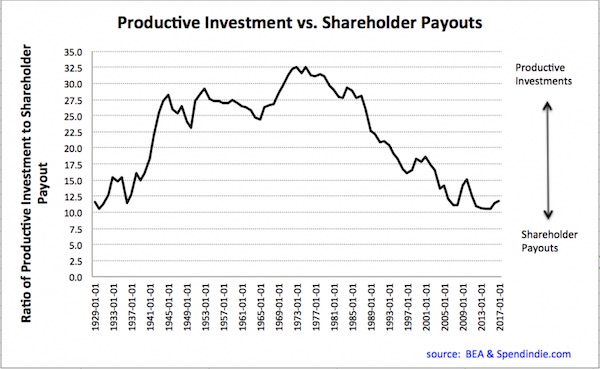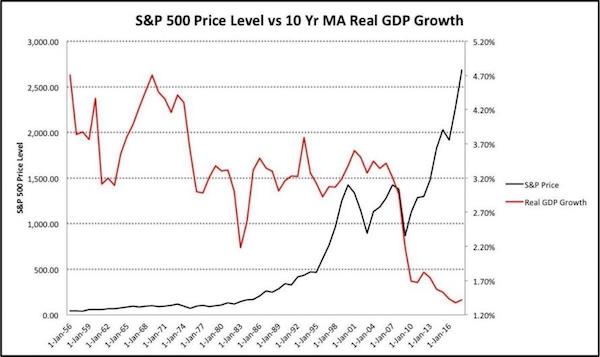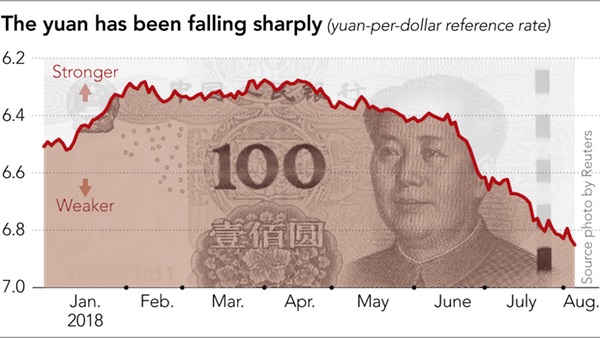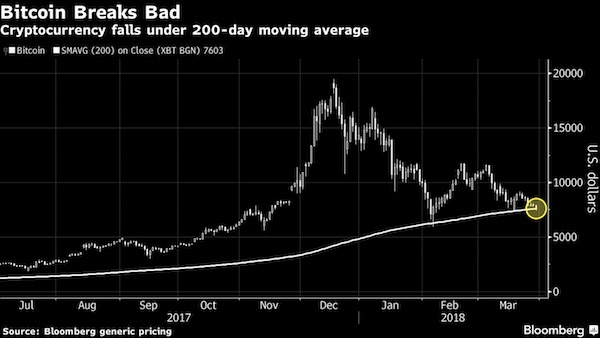
Pablo Picasso Juan-Les-Pins � 1920

I could use any report about what happened yesterday, I’ll stick with Tyler Durden. Because everything I read from major news outlets is about freedom of the press being violated by Trump and his staff. I saw the press conference, and that was not my impression. After Jim Acosta has asked multiple questions, in antagonistic fashion, Trump said it was enough. Then Acosta tried to turn it into the Jim Acosta show.
Access to a president’s press-ops does not mean permission to be obnoxious, nor does it mean a journalist gets to set the rules, which the president would then have to abide by. You’ve had multiple questions, there are dozens of other reporters, that’s it for you. Refusing to hand over the mic at that point means denying your peers their own freedom of the press. Also of course, there’s history here: Acosta and CNN have been hounding Trump for over 2 years now. Not objectively, not impartial, but with an agenda. And now they get to play the victims again.
• White House Pulls CNN’s Jim Acosta’s Media Credentials (ZH)
Following the disturbing behavior in this morning’s White House press conference, when a journalist from CNN refused to hand his mic back to a White House aide… White House spokesperson Sarah Sanders announced that CNN’s Jim Acosta has had his media credentials pulled: “President Trump believes in a free press and expects and welcomes tough questions of him and his Administration. We will, however, never tolerate a reporter placing his hands on a young woman just trying to do her job as a White House intern… This conduct is absolutely unacceptable. It is also completely disrespectful to the reporter’s colleagues not to allow them an opportunity to ask a question. President Trump has given the press more access than any President in history. ”
Sanders continued: “Contrary to CNN’s assertions there is no greater demonstration of the President’s support for a free press than the event he held today. Only they would attack the President for not supporting a free press in the midst of him taking 68 questions from 35 different reporters over the course of 1.5 hours including several from the reporter in question. The fact that CNN is proud of the way their employee behaved is not only disgusting, it‘s an example of their outrageous disregard for everyone, including young women, who work in this Administration. As a result of today’s incident, the White House is suspending the hard pass of the reporter involved until further notice.”
While some have questioned whether he “acosta’d her”, the CNN reporter has just confirmed it via tweet… “I’ve just been denied entrance to the WH. Secret Service just informed me I cannot enter the WH grounds for my 8pm hit” Shortly after the press briefing debacle, Rawstory reports that CNN President Jeff Zucker attempted to rally the network’s reporters… “I want you to know that we have your backs,” Zucker said a memo to employees that was obtained by The Hollywood Reporter. “That this organization believes fiercely in the protections granted to us by the First Amendment, and we will defend them, and you, vigorously, every time.” Although not even CNN probably expected this level of escalation. Which is why we wonder, how long before a) the rest of the press corps boycotts the White House briefings, and b) the hashtag #BringBackAcosta starts trending?

Funny, I was doing a podcast with Jim Kunstler yesterday, and as soon as we finished there were the Acosta and Sessions events (would have been prominent material in our conversation). The Sessions firing was obvious well before the midterms. Whatever you think of it, Sessions left Trump in a hole when he first accepted the AG job and recused himself in the Mueller files right after. A dependable AG is crucial for any president, and even more for Trump, who’s been under investigation(s) from day one. There’s an assumption that Mueller will now be fired, but everyone understands that can only be done with solid reasoning. That the Mueller investigation should be wrapped up is clear to everyone except those who like it hanging over Trump’s head.
• Will Mueller Use “Constructive Discharge” To Challenge Sessions Replacement?
Special Counsel Robert Mueller could use a legal concept known as “constructive discharge” to challenge the appointment of Matt Whitaker, the acting Attorney General, by arguing that Attorney General Jeff Sessions was forced out as opposed to voluntarily leaving, reports Bloomberg, citing a former federal prosecutor. “Mueller could argue in court that Trump effectively fired Sessions after months of verbal abuse, a legal concept known as a constructive discharge, said Renato Mariotti, a former federal prosecutor. Under the Federal Vacancies Reform Act, Trump can appoint an acting official without Senate confirmation if he replaces someone who has been incapacitated or resigned. It doesn’t apply if the previous official was fired.”-Bloomberg
Whitaker was appointed to run the DOJ after Sessions submitted his resignation Wednesday at Trump’s request. While Sessions had recused himself from the Trump-Russia probe, Whitaker will now control oversight of the investigation – a duty which has fallen on the shoulders of Deputy Attorney General Rod Rosenstein – despite the fact that he himself was involved in the FISA warrant process to spy on the Trump campaign. Sessions’ resignation letter begins with “At your request,” making it unambiguous that Trump fired him. “The question is whether he was constructively fired, which means he didn’t resign from his post,” Mariotti said. “I don’t know the answer as to how the courts would view that.”
Challenging Whitaker’s appointment “could be Mueller himself,” said Mariotti, adding “That would be one obvious person.” “Legal experts agree it would be difficult to remove Whitaker from a post he can hold for seven months under the law. He can’t be appointed permanently, and Trump said he would appoint someone at a later date.” -Bloomberg “It’s not clear whether a firing would allow Trump to appoint him as an interim,” said former federal prosecutor Barbara McQuade, who teaches law at the University of Michigan. If Sessions voluntarily resigned, “it’s permissible for Trump to make this interim appointment.”
“I don’t see any reason why Whitaker would not be the one to supervise the Mueller investigation and take it out of the hands of Rod Rosenstein,” she added. Rosenstein appeared at the White House on Wednesday for a previously unscheduled appointment. Meanwhile, Bloomberg notes that special counsels can be removed under the law for “misconduct, dereliction of duty, incapacity, conflict of interest, or for other good cause.” Whitaker is on record saying that if Mueller investigates the Trump family finances beyond anything to do with Russia, “that goes beyond the scope of the special counsel.”

“..allegedly done through chat rooms with such names as “The Cartel,” “The Mafia” and “The Bandits’ Club,” through tactics with such names as “front running,” “banging the close,” “painting the screen” and “taking out the filth.”
• Big Investors Sue 16 Banks In US Over Currency Market Rigging (R.)
A group of large institutional investors including BlackRock and Allianz’s Pacific Investment Management Co has sued 16 major banks, accusing them of rigging prices in the roughly $5.1 trillion-a-day foreign exchange market. The lawsuit was filed on Wednesday in the U.S. District Court in Manhattan by plaintiffs that decided to “opt out” of similar nationwide litigation that has resulted in $2.31 billion (£1.76 billion) of settlements with 15 of the banks. Those settlements followed worldwide regulatory probes that have led to more than $10 billion of fines for several banks, and the convictions or indictments of some traders. The banks being sued are: Bank of America, Barclays, BNP Paribas, Citigroup, Credit Suisse, Deutsche Bank, Goldman Sachs, HSBC, JPMorgan Chase, Morgan Stanley, Japan’s MUFG Bank, Royal Bank of Canada, Royal Bank of Scotland, Societe Generale, Standard Chartered and UBS.
Investors typically opt out of litigation when they hope to recover more by suing on their own. The plaintiffs in Wednesday’s lawsuit accused the banks of violating U.S. antitrust law by conspiring from 2003 to 2013 to rig currency benchmarks including the WM/Reuters Closing Rates for their own benefit by sharing confidential orders and trading positions. This manipulation was allegedly done through chat rooms with such names as “The Cartel,” “The Mafia” and “The Bandits’ Club,” through tactics with such names as “front running,” “banging the close,” “painting the screen” and “taking out the filth.” “By colluding to manipulate FX prices, benchmarks, and bid/ask spreads, defendants restrained trade, decreased competition, and artificially increased prices, thereby injuring plaintiffs,” the 221-page complaint said.

What can be done with gold.
• The United States Is Going Broke (Rickards)
The Fed could actually cause inflation in about 15 minutes if it used it. How? The Fed can call a board meeting, vote on a new policy, walk outside and announce to the world that effective immediately, the price of gold is $5,000 per ounce. They could make that new price stick by using the Treasury’s gold in Fort Knox and the major U.S. bank gold dealers to conduct “open market operations” in gold. They will be a buyer if the price hits $4,950 per ounce or less and a seller if the price hits $5,050 per ounce or higher. They will print money when they buy and reduce the money supply when they sell via the banks. The Fed would target the gold price rather than interest rates.
The point is to cause a generalized increase in the price level. A rise in the price of gold from today’s roughly $1,230 per ounce to $5,000 per ounce is a massive devaluation of the dollar when measured in the quantity of gold that one dollar can buy. There it is — massive inflation in 15 minutes: the time it takes to vote on the new policy.
Don’t think this is possible? It’s happened in the U.S. twice in the past 80 years. The first time was in 1933 when President Franklin Roosevelt ordered an increase in the gold price from $20.67 per ounce to $35.00 per ounce, nearly a 75% rise in the dollar price of gold. He did this to break the deflation of the Great Depression, and it worked. The economy grew strongly from 1934-36. The second time was in the 1970s when Nixon ended the conversion of dollars into gold by U.S. trading partners. Nixon did not want inflation, but he got it. Gold went from $35 per ounce to $800 per ounce in less than nine years, a 2,200% increase. U.S. dollar inflation was over 50% from 1977-1981. The value of the dollar was cut in half in those five years.

Abenomics keeps on giving…
• Japan Machinery Orders Hit By Worst-Ever Slump In September (R.)
Japan’s core machinery orders tumbled by the most on record in September after a severe earthquake and typhoons disrupted business activity, with economists now also worried about a fall in overseas orders. The 18.3 percent slump in machinery orders far outpaced the median market estimate for a 10.0 percent decline and follows a 6.8 percent increase in August. September’s 12.5 percent decline in overseas machinery orders, the biggest such fall in more than two years, could signal sustained weakness in export demand. Japan’s economy is forecast to contract in July-September, and the machinery orders slump suggests any rebound in the following quarters is likely to be weak if exports and business investment lose momentum.
Manufacturers surveyed by the government expect core machinery orders to rise 3.6 percent in October-December after a 0.9 percent increase in July-September, but some economists worry this forecast is overly optimistic. “I was already expecting capital expenditure to be weak in July-September, but the fall in overseas orders makes me worried about demand from China,” said Hiroaki Muto, economist at Tokai Tokyo Research Center. “Japan’s economy will resume expansion from the fourth quarter, but I’m worried the pace of growth will wane.”

Watch the rest of the year.
• China October Exports Surprisingly Strong In Race To Beat US Tariffs (R.)
China reported much stronger-than-expected exports for October as shippers rushed goods to the United States, its biggest trading partner, racing to beat higher tariff rates due to kick in at the start of next year. Import growth also defied forecasts for a slowdown, suggesting Beijing’s growth-boosting measures to support the cooling economy may be slowly starting to make themselves felt. The upbeat trade readings from China offer good news for both those worried about global demand and for the country’s policymakers after the economy logged its weakest growth since the global financial crisis in the third quarter. October was the first full month after the latest U.S. tariffs on Chinese goods went into effect on Sept. 24, in a significant escalation in the tit-for-tat trade battle.
But analysts continue to warn of the risk of a sharp drop in U.S. demand for Chinese goods early in 2019, with all eyes now on whether presidents Donald Trump and Xi Jinping can make any breakthroughs on trade when they meet later this month. China’s exports rose 15.6 percent last month from a year earlier, customs data showed on Thursday, picking up from September’s 14.5 percent and beating analysts’ forecasts for a modest slowdown to 11 percent. “The strong export growth in October was buoyed by front-loading activities by exporters…,” said Iris Pang, Greater China Economist at ING in Hong Kong, noting the month is traditionally quieter due to long holidays. “We expect exports to remain strong towards the end of the year as businesses are afraid of a failure in the Trump-Xi meeting, which could lead to broader tariffs on more Chinese goods from the U.S.” Pang said.

The edge of monoply.
• EU’s Vestager Says Probe Into Google AdSense Case Nearing End (R.)
EU regulators are close to wrapping up their third case against Alphabet unit Google involving its AdSense advertising service, Europe’s antitrust chief said on Wednesday, suggesting the company may soon be hit with another hefty fine. The comments by European Competition Commissioner Margrethe Vestager come four months after she levied a record 4.34 billion euro ($5 billion) fine against Google for using its popular Android mobile operating system to block rivals. That followed a 2.4 billion euro fine imposed on the company last year after it thwarted rivals of shopping comparison websites. The European Commission in 2016 opened a third case when it accused Google of preventing third parties using its AdSense product from displaying search advertisements from Google’s competitors. Vestager can fine companies up to 10 percent of their global turnover for breaching EU rules.

Europe’s finances in all Italian hands.
• Italy’s Enria Wins Race To Head ECB Banking Watchdog (R.)
Italian Andrea Enria was picked on Wednesday to head the European Central Bank’s supervisory arm, overseeing a bloated, 21 trillion euro banking sector still troubled by a legacy of bad debt from the euro zone’s financial crisis. Defeating Ireland’s Sharon Donnery in a hotly-contested run-off, Enria will now head the Single Supervisory Mechanism, covering the euro zone’s 118 top lenders, with many still reeling from the last recession and facing new challenges from hacking to fintech. The ECB’s Governing Council selected Enria in a secret ballot, and his appointment must now be approved by the full European Parliament and relevant ministers.
Enria, who has chaired the London-based European Banking Authority since 2011, has played a major role in shaping the European Union’s new financial rulebook in the aftermath of the crisis. A former supervisor at the Bank of Italy and the ECB, he is viewed as politically neutral and ruffled some feathers at home for what was seen as an overly tough stance on unpaid bank loans and credit to small companies. “If approved by the Parliament and confirmed by the Council of the European Union, Mr Enria will succeed Danièle Nouy as Chair of the Supervisory Board on 1 January 2019,” the ECB said in a statement.
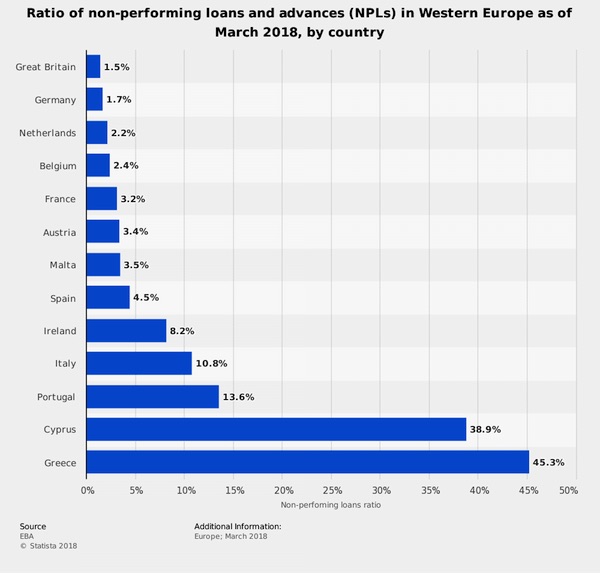

Long read. The origins are curious. And extremely misguided. How can you deny that opium is addictive after seeing Britain’s opium trade laying siege to large swaths of China?
“One theory, promoted by Dr David Haddox, was that patients genuinely experiencing pain could not become addicted to opioids because the pain neutralised the euphoria caused by the narcotic…”
• The Making of an Opioid Epidemic (G.)
Jane Ballantyne was, at one time, a true believer. The British-born doctor, who trained as an anaesthetist on the NHS before her appointment to head the pain department at Harvard and its associated hospital, drank up the promise of opioid painkillers – drugs such as morphine and methadone – in the late 1990s. Ballantyne listened to the evangelists among her colleagues who painted the drugs as magic bullets against the scourge of chronic pain blighting millions of American lives. Doctors such as Russell Portenoy at the Memorial Sloan Kettering Cancer Center in New York saw how effective morphine was in easing the pain of dying cancer patients thanks to the hospice movement that came out of the UK in the 1970s.
Why, the new thinking went, could the same opioids not be made to work for people grappling with the physical and mental toll of debilitating pain from arthritis, wrecked knees and bodies worn out by physically demanding jobs? As Portenoy saw it, opiates were effective painkillers through most of recorded history and it was only outdated fears about addiction that prevented the drugs still playing that role. Opioids were languishing from the legacy of an earlier epidemic that prompted President Theodore Roosevelt to appoint the US’s first opium commissioner, Dr Hamilton Wright, in 1908. Portenoy wanted to liberate them from this taint. Wright described Americans as “the greatest drug fiends in the world”, and opium and morphine as a “national curse”. After that the medical profession treated opioid pain relief with what Portenoy and his colleagues regarded as unwarranted fear, stigmatising a valuable medicine.
These new evangelists painted a picture of a nation awash in chronic pain that could be relieved if only the medical profession would overcome its prejudices. They constructed a web of claims they said were rooted in science to back their case, including an assertion that the risk of addiction from narcotic painkillers was “less than 1%” and that dosages could be increased without limit until the pain was overcome. But the evidence was, at best, thin and in time would not stand up to detailed scrutiny. One theory, promoted by Dr David Haddox, was that patients genuinely experiencing pain could not become addicted to opioids because the pain neutralised the euphoria caused by the narcotic. He said that what looked to prescribing doctors like a patient hooked on the drug was “pseudo-addiction”.

Guess where most of the world’s ivory is traded? It’s very clear what Europeans want, but Brussels again simply slips them the finger.
• EU Backtracks On Total Ivory Ban (Ind.)
Politicians and campaigners have expressed dismay that the European Union (EU) appears to be holding back on further restrictions on the continent’s ivory trade, despite enormous global pressure. Europe is the largest domestic market for ivory products in the world and research has demonstrated that illegally poached ivory often makes its way into the legal market. In 2017, the European Commission banned the export of raw ivory, but many still think the only way to make a dent in demand for products made of the material is to ban the domestic trade entirely. China, the US and the UK have already moved to halt such trade in an effort to make elephants a less lucrative target for poachers and to stamp out the corruption and organised crime the trade supports.
Despite the backing of African leaders and scores of European politicians, a new report outlining efforts to curb wildlife trafficking in Europe has removed a pledge to further restrict the trade. [..] Besides the consultation respondents calling for tougher rules, 32 African nations have joined together in calling for an EU-wide ban, including a complete shutdown of the domestic market. Further support has come from over 100 MEPs who wrote to the environment commissioner Karmenu Vella in July urging a total ban. Responding to the discrepancy between different versions of the report, chair of interest group MEPs for Wildlife, Catherine Bearder said: “The EU is a major transit point for illegal wildlife products being shipped to the Far East and other global destinations. Elephants are being pushed to the brink of extinction and for what? For useless trinkets the world doesn’t need.”




